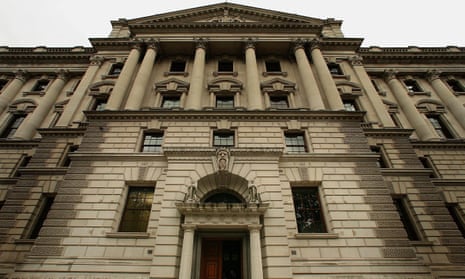The UK’s tax policy is effectively dictated by companies and not ministers, according to a leading barrister and adviser to the Treasury on its recent “Google tax”.
Philip Baker QC said policymakers and tax experts had learned over recent decades that the mobility of companies and jobs meant there was “no question [countries] have to be competitive to survive”. As a consequence, governments had to provide the tax policies that international corporations wanted.
Speaking to an audience of tax planners, academics and HMRC officials at the Centre for Business Taxation, part of Oxford University’s Said Business School, Baker said: “I don’t think in the last 20 years or so one can say that governments have driven corporation tax policy. It’s the large companies that have driven the direction of corporate tax policy.”
His comments add to claims two years ago from WPP chief executive Sir Martin Sorrell, who said corporation tax payments were “a question of judgment” for multinational companies, weighed against corporate reputation as much as the risk of challenge in the tax courts.
In 2008, Sorrell had switched the advertising group’s headquarter functions from London to Dublin to escape a tightening of UK tax rules for offshore subsidiaries. When, four years later, this crackdown was reversed, Sorrell promptly returned WPP’s HQ activities to the UK.

Baker, who is one of Europe’s leading authorities on international tax law and advised the government on its “Google tax”, said the influence corporations exert over tax policy was inevitable unless there was more coordination between EU member states on tax, such as measures proposed by the European commission last week.
Known as the Common Consolidated Corporate Tax Base (CCCTB), these new proposals were set out by commissioner for tax Pierre Moscovici in answer to the LuxLeaks scandal, which last year laid bare the extent to which some smaller EU countries had set their tax policy to routinely facilitate tax avoidance by multinationals, eroding tax receipts beyond their borders.
Baker told the tax conference he thought it regrettable that the UK appeared to have immediately rejected such plans out of hand. “I understand why the UK will not join in implementing CCCTB, but it’s a great pity because until you’ve tried something you don’t know if it might actually work,” he said. “It is conceivable that perhaps with the enhanced cooperation of a number of countries it works and we do have a genuine alternative.”
Commenting on George Osborne’s diverted profits tax — commonly known as the “Google tax” — Baker said it was no different in effect from the tax reforms being developed by a G20 initiative, of which the UK was part. He said the chancellor had moved ahead of that process, introducing the measure early for political reasons.
“The impending election meant that the UK couldn’t wait,” he explained, though he stressed he was speaking personally and not for ministers. “The government would have been criticised for not doing anything about corporate tax avoidance.” More broadly, however, he insisted companies were driving corporate tax policy, not ministers — though he accepted this was a controversial claim some would dispute.
The Centre for Business Taxation is funded by donations from many of Britain’s largest corporations including Diageo, GlaxoSmithKline, Alliance Boots, SABMiller and Pearson. Past donors have included Vodafone, WPP Group, Shire Pharmaceuticals and ICAP. Many of these companies have been involved in high-profile controversies about tax in the past.
Also speaking at the conference, Edward Troup, HMRC’s tax assurance commissioner, said he too felt recent decades of globalisation had brought a shift away from the “high-water mark of what you might call statism” in terms of tax treatment of multinationals.
The conference was organised by Michael Devereux, an economist who heads the Centre for Business Taxation at the Said Business School and who is also an adviser to the Treasury, sitting on the department’s business forum for tax and competitiveness.
As long ago as 1999, Devereux had told the House of Lords he believed corporation tax collection was doomed. “If I can make a bold prediction, I would say that corporate taxes will eventually just wither — there will be no corporate tax at all, partly because of the process of competition between states and partly as companies can organise their affairs effectively to reduce their corporation tax,” he told peers.
Devereux told the conference, which marked 50 years of corporation tax in the UK, that he stood by his long-held belief that countries would eventually compete this tax out of existence. He said that with its ambition to become the most competitive tax regime in the G20 the UK had made strides in that direction – including the lowering of the statutory tax rate for large businesses from 28% to 20% in the last parliament – but there was more that he would like to see done.
